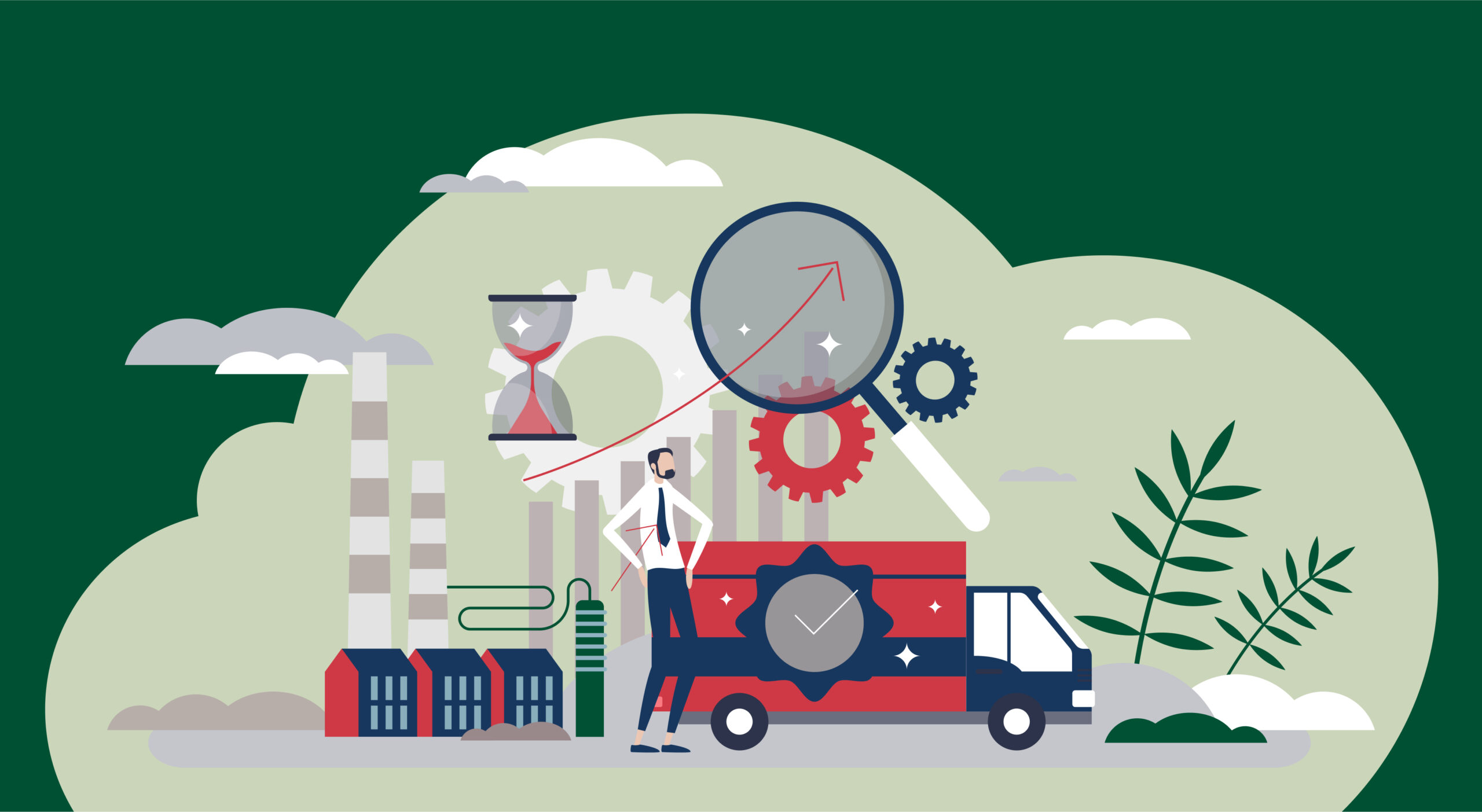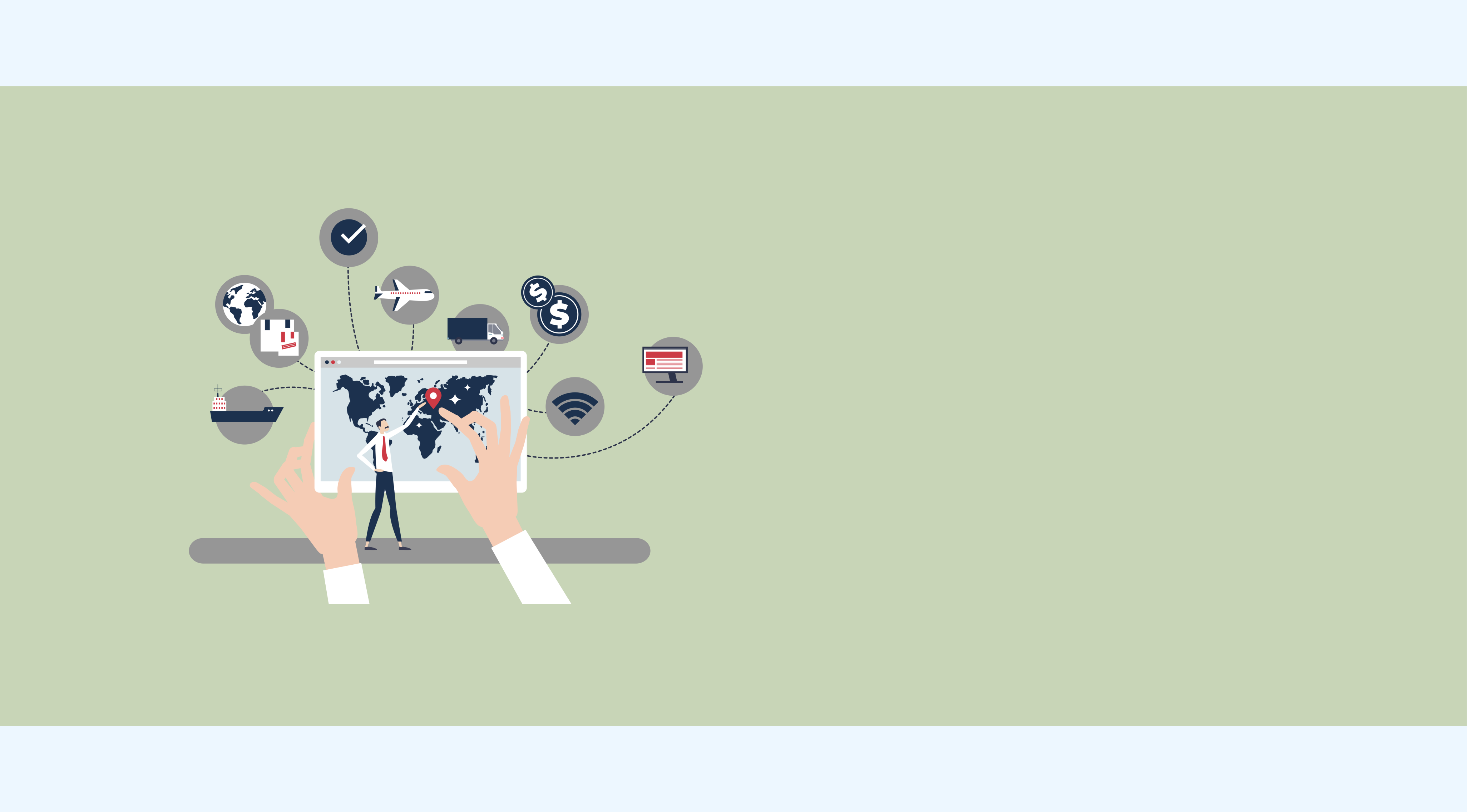New supply chain laws create a legal framework to uphold human rights and protect the environment along global supply chains. These laws stipulate the minimum company size and the extent to which companies must comply with their due diligence obligations.
How can WifOR support companies in dealing with the Supply Chain Act? Learn more here.
What does the German Supply Chain Act regulate?
Since January 2023, the German Supply Chain Due Diligence Act has applied to companies with more than 3,000 employees and a registered office or permanent site in Germany. From 2024, the minimum threshold has been lowered to 1,000 employees.
The Supply Chain Act obliges companies to:
- analyze human rights risks in their supply chain
- take preventive and rectifying measures
- set up grievance mechanisms
- report on their activities
- and be held responsible in German courts for non-compliance.
Objectives of the German Supply Chain Act in detail
The main objective of the Supply Chain Act is to ensure companies comply with basic human rights and environmental standards along their entire supply chain. This includes, for example, the prevention of child labor, exploitation in the form of modern slavery, and hazardous waste.
Creating legal certainty
The Supply Chain Act defines clear requirements for corporate due diligence obligations. This creates a legal basis for companies to identify and assess human rights risks and take appropriate measures. This should not only increase legal certainty for companies, but also ensure the protection of potentially affected people.
Establishing fair conditions for competition
Another key aspect of the Supply Chain Act is to create a fair framework for companies in Germany. It is intended to ensure that companies already acting responsibly are not disadvantaged in comparison to those that neglect human rights and environmental standards. This means that companies which have proactively invested in complying with corporate due diligence obligations will not come under pressure from competitors that ignore standards in order to cut costs.
External review and enforcement
Germany’s Federal Office of Economics and Export Control (BAFA) monitors compliance with the law. It reviews company reports, and investigates complaints from affected parties. Moreover, it can impose fines or exclude companies from public tenders in the event of non-compliance. This external review ensures that companies take their obligations seriously and comply with the prescribed standards.
The European Supply Chain Act
Despite considerable resistance, particularly from parts of the German government, the EU member states agreed on an EU-wide directive on supply chain legislation (Corporate Sustainability Due Diligence Directive; short: CSDDD or CS3D) on March 15, 2024.
Once the directive for the European supply chain law has been adopted, governments of the respective countries are required to implement it within national law. This means that that existing supply chain laws, such as the German “Lieferkettensorgfaltspflichtengesetz” or the French “Loi de vigilance”, will have to be adapted to the EU directive.
Comparison: German and European supply chain laws
Both Germany’s Supply Chain Act and the Europe’s supply chain legislation fundamentally aim to ensure human rights and environmental standards are protected in the economy by making global supply chains more transparent. However, there are significant differences in terms of scope, area of responsibility, extent, and potential consequences for the obligated companies:
| The German Supply Chain Law | The European Supply Chain Law |
|---|---|
| Scope From 2023, initially for companies with 3,000 employees; since January 1, 2024 for companies with 1,000 employees. | Scope The law applies to companies with 1,000+ employees and a turnover of over €450 million. The directive is also valid for non-EU companies with a corresponding turnover in the EU. |
| Area of responsibility Companies must integrate preventive measures in their own business operations as well as direct suppliers. They must also set up a grievance procedure that makes it possible to draw attention to risks and violations of human rights or environmental standards by indirect suppliers and adapt risk management accordingly. In the event of a clear indication of violations, companies must immediately carry out a risk analysis, take preventive measures and regularly prepare reports on the fulfillment of their due diligence obligations. The documentation must be kept for seven years and made publicly accessible. | Area of responsibility Companies must carry out risk analysis and ensure their due diligence obligations are fulfilled on an ongoing basis. The regulation applies to direct and indirect suppliers along the entire supply chain. |
| Extent The protection of the environment is covered by the law once environmental risks can lead to human rights violations. Environmental infringements are also integrated via two international agreements on protection against the health and environmental hazards of mercury and harmful enduring organic substances. | Extent The European Parliament’s proposal targets environmental and social areas, including fair wages, safe working conditions, children’s rights, and the prohibition of forced labor, modern slavery and environmental degradation affecting natural resources for food production, access to clean drinking water and the prevention of deforestation. |
| Potential consequences Fines of up to €800,000 or up to 2% of a company’s global annual turnover and exclusion from public tenders for up to three years. | Potential consequences Violations could result in fines of up to 5% of annual global turnover and civil liability in the event of negligence or intent. |
New supply chain laws: history, status quo & outlook
In June 2021, the Bundestag passed the “Act on Corporate Due Diligence in Supply Chains”. Regarding the efforts for an EU-wide supply chain directive, however, ministries led by Germany’s liberal party FDP put up considerable resistance to until the very end. On March 15, 2024, EU member states nevertheless agreed on an EU-wide law in a significantly watered down form. In contrast to the original wording, the law applies to companies with more than 1,000 employees (instead of 500) and an annual turnover of 450 million (instead of 150 million). Civil liability has also been weakened.
Foundation of the “Supply Chain Act Initiative”
On Sept. 10, 2019, the “Supply Chain Law Initiative” was founded, bringing together 63 organizations from the fields of human rights, environmental action, religion, and sustainable development.
Monitoring by Germany’s government
German companies fail a German government monitoring survey. Only 20% voluntarily comply with human rights requirements.
Demands for a German supply chain law
Both from the social and political sphere.
Announcement of the drafted EU Supply Chain Act
EU Commissioner Reynders announces the draft of an EU supply chain law for 2021.
Announcement of the drafted EU Supply Chain Act
EU Commissioner Reynders announces a draft for the EU Supply Chain Law for 2021.
Mandate for Legislative Initiative Report
The Legal Affairs Committee of the EU Parliament votes by a large majority in favor of a “legislative self-initiative report”.
Consensus in the Bundestag
The Bundestag agrees on a German Supply Chain Act.
Adoption of German Supply Chain Act
The German Bundestag passes the German Supply Chain Act.
Proposal by the European Commission
The proposal for a European supply chain law is presented.
Comes into force
The German Supply Chain Act comes into force as of January 1, 2023.
Provisional agreement in the EU
The Council and the European Parliament reaches a provisional agreement on the Corporate Sustainability Due Diligence Directive.
FDP announces that it will not agree to the EU directive
FDP-led ministries in the German government announce shortly before the vote that they would not approve the proposal. In the Council of the European Union, this would result in Germany abstaining, which would have the effect of a “no” vote.
Vote postponed
The Council of the EU member states postpones the vote on the European Supply Chain Act (CS3D) at short notice. The background to this is Germany’s announced abstention.
EU states vote in favor of an EU supply chain law
EU member states adopt a common supply chain law in a watered down form.
Pros and cons of a European supply chain law for companies
Despite being blocked by Germany’s liberal party FDP, EU member states were able to agree on a European supply chain law. What advantages and disadvantages does this have for companies in Europe? An overview.
Opportunities for companies from a European supply chain law
A European supply chain law creates a uniform legislative framework to promote transparency and legal clarity in Europe. This harmonization eliminates the uncertainties and complexities associated with the diversity of national laws. In addition, a European law ensures that companies are not disadvantaged and that there is a level playing field across the continent. This is particularly relevant given that many companies in countries with existing supply chain laws have already made considerable investments in implementing sustainability standards.
A supply chain law also strengthens the remit of European companies to shape and influence compliance with standards along the entire supply chain in challenging political environments. In addition, a legal guarantee of sustainability standards promotes long-term consumer confidence in products and brands.
Risks for companies from a European supply chain law
However, it is an enormous challenge for global companies with highly fragmented supply chains to identify deficiencies along their entire supply chain. Some companies fear that a European law could put them at a disadvantage in international competition, especially compared to companies from countries without comparable legislation. This is because a European law will lead to additional efforts and costs on the behalf of companies.
There are also concerns regarding the uncertainty of legal terms and the possibility of civil lawsuits. Medium-sized enterprises could suffer particularly from the requirements of a European supply chain law, as they may not have the resources to meet these requirements.
To meet the corporate due diligence requirements of both the German Supply Chain Act and the upcoming EU directive, companies need a holistic overview of their social and environmental impact along the supply chain. WifOR is already considering the requirements at EU level to enable companies to build on current solutions when the CS3D comes into force.
How can WifOR support companies in dealing with the Supply Chain Act?
Key components of both Supply Chain Acts include risk analysis and prioritization in order to define targeted preventive and remedial measures. Using a macroeconomic model, WifOR identifies social and environmental hotspots along global supply chains based on purchasing data.
Prioritization using Impact Valuation
Results of Impact Analysis are initially expressed in physical variables, such as number of workplace accidents or tons of CO₂ emitted. In order to enable a comparison, the second step is to convert the results into a standardized, monetarized value. Consequently, impacts can be prioritized – as required by the Supply Chain Act.
Coefficients, known as Impact Valuation factors, can be used to translate physical units into a common currency. This methodical approach makes it more accessible to compare the impact of different social and environmental indicators. This enables the areas with the greatest impact on society to be ranked, forming a data-based foundation for prioritizing measures. The results thus support sustainable decision-making and facilitate more effective risk management.
Calculate own results using WifOR’s Sustainability Impact Tool (WISIT)
For companies wanting to carry out risk analysis themselves, the WifOR Sustainability Impact Tool (WISIT) offers a Supply Chain Act feature. WISIT supports companies in analyzing and reporting in accordance with legal requirements. It enables risks along the supply chain to be identified, analyzed, and prioritized. The results are provided in a format that can be easily transferred to the final Supply Chain Act reporting documents.
Watch the video to learn how companies can meet Germany’s Supply Chain Act requirements using WISIT:








